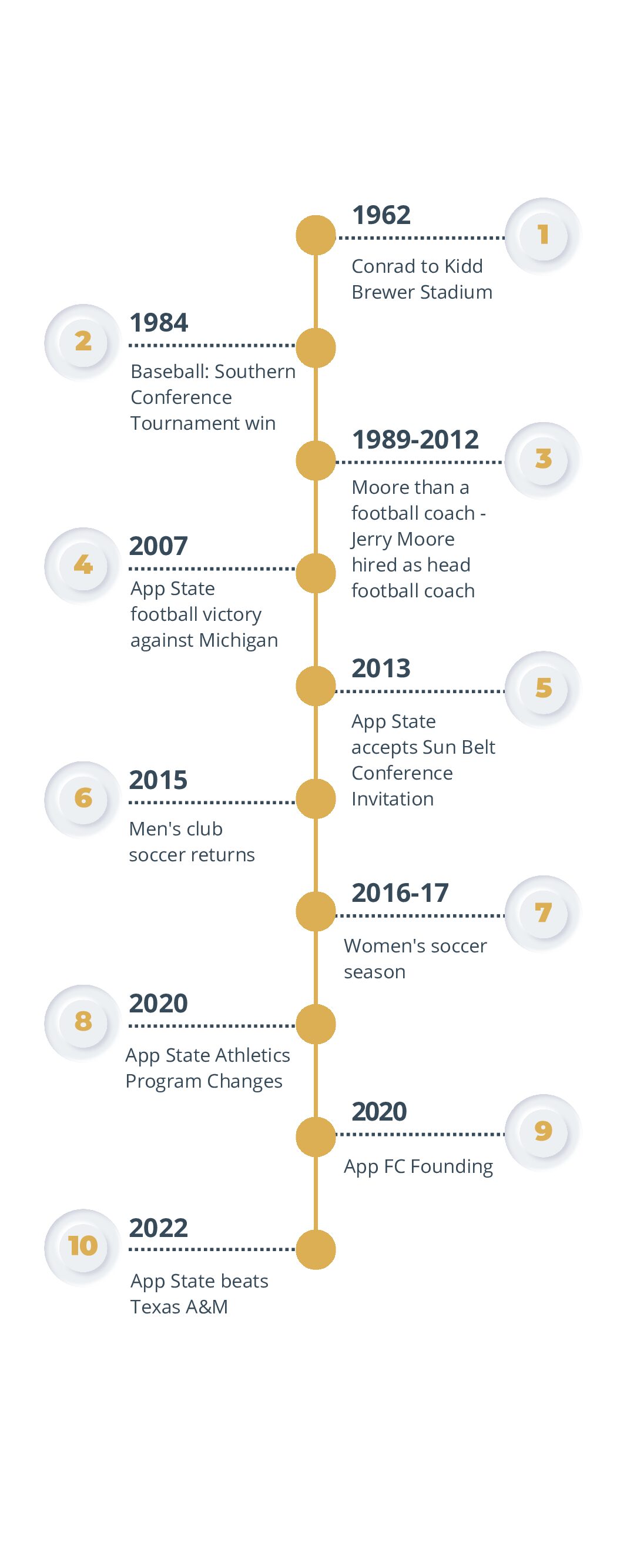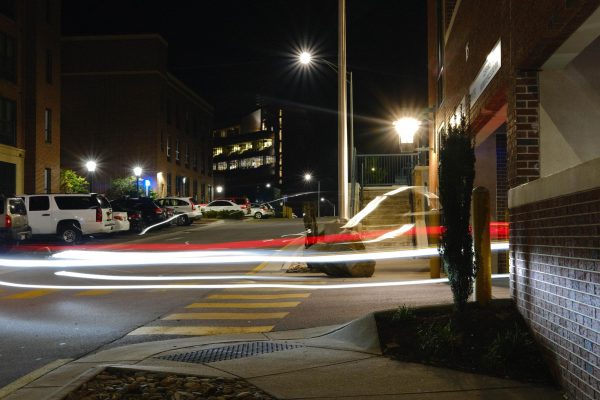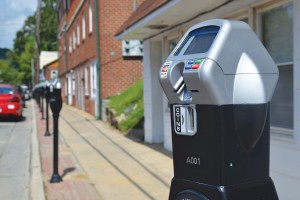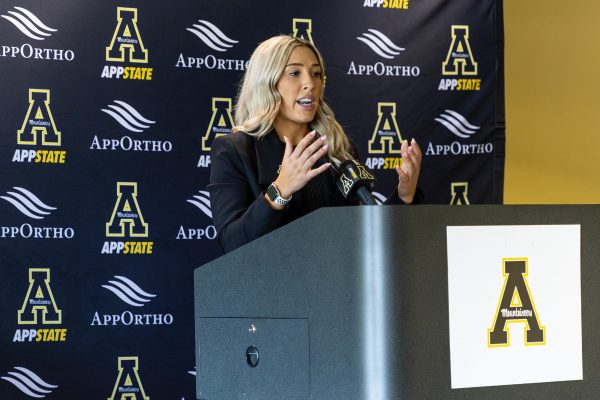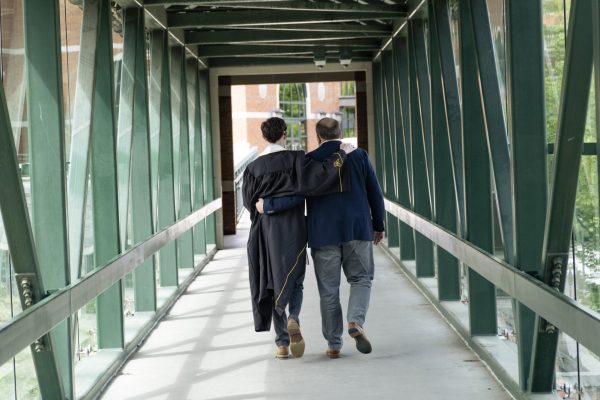The Intergovernmental Panel on Climate Change released a report in October stating that if we do not implement “rapid, far-reaching and unprecedented changes in all aspects of society,” we are heading towards climate catastrophe. In light of the report, the university and Town of Boone must come together urgently, now more than ever, to expand the strength of our community to raise collective well-being.
If we continue on the path of global economic development focused on resource extraction and profit accumulation, we are heading towards a future of resource scarcity. By shifting towards a local economy, the community of Boone can provide for each other’s needs while mitigating the High Country’s contribution to climate change.
While the previous goals to prevent climate disaster were set to stay below 2.0 degrees Celsius warming, the IPCC has found that we must stay under 1.5 degrees Celsius to prevent climate-related risks to natural and human systems. By staying under 1.5 degrees Celsius, the magnitude of climate change can be slowed and slightly reduced, including slower rates of sea level rise along with temperature and acidity levels, less impacts on biodiversity and ecosystem loss, as well as less risks to human health, food supply and water access. Current emissions have not surpassed 1.5 degrees Celsius, but the continuation of “business as usual” guarantees the surpassing of this limit.
The university has committed to reduce its greenhouse gas emissions. As declared in the Strategic Energy and Water Management Plan published in 2017, Chancellor Sheri Everts stated, “We believe carbon neutrality and resilience are extremely high priority areas of action for all institutions and we aim to lead the nation in these efforts.”
However, the university’s 2019 goal for renewable energy is a mere 0.5 percent of the total energy use. This demonstrates that the university’s actions and goals will not be enough for the rapid reduction in emissions the IPCC calls for, especially when accounting for the planned growth and expansion of the student population and infrastructure as laid out in the 2025 Strategic Plan. The university’s own sustainability website reads, “More students = more buildings = more energy.” How can emissions be reduced while simultaneously planning for infrastructure expansion?
Similarly, in the Town of Boone’s 2018 Comprehensive Plan there is an overwhelming focus on economic development and growth. Due to high levels of unemployment and low-wage jobs in the High Country, the plan is centered around development of the tourism industry.
The plan says: “The Town shall encourage the development of a well-balanced tourism trade as a primary element of the area’s economic future. Investments in services, facilities, and proper growth management shall be employed in furtherance of
this policy.”
Although vague, the plan’s emphasis is in investments in outside industries to foster economic growth in tourism as a solution to unemployment; however, this ignores the impacts of how further development exploits both the environment and community.
If we are to take seriously the imminent threat of climate disaster that the IPCC anticipates without radical change, then these current plans need to be understood as part of the problem, not the solution. It is clear that both plans are centered around economic development and growth, which is embedded within the larger issue of climate change as they require continued reliance on extractive industries and ever growing consumption.
The university and Boone’s plans will require a substantial amount of resources which is inherently predicated on fossil fuel emissions and natural resource depletion. To adequately respond to the threats of climate change, both plans must deeply consider the effects of the current economic system and its environmental impacts.
The guidebook “Take Back the Economy” by Gibson-Graham asks readers to think about the relationship between the economy and environmental destruction. They advocate that the only way to solve climate change is by shifting to a community economy in which the priority is well-being, not profit. The guidebook has a multitude of examples of communities coming together to shift economic production and consumption to be more than just about profit accumulation.
“Across the globe, people are reframing the economy and their role in it in all sorts of ways. They are reframing growth by divorcing it from increased spending (Gross Domestic Product) and linking it more directly to social and environmental well-being. The economy is not a machine that operates in a predictable way, we can’t set a course and expect that things will systematically unfold. And if our earth is not a bottomless resource pit, we can’t keep feeding it to a machine to be gobbled up and spewed out. We must find other metaphors, other frames of meaning, that inspire new ways of being and acting.”
Gibson-Graham demonstrates the power communities have to rethink the economy in a way that equitably benefits one another. It is important to note that a community economy can and does utilize money. However, rather than the indicator of success in an economy being measured by profit, the focus is on the totality of well-being. This entails limiting growth and development so they do not exceed environmental limits or negatively impact the community. By transitioning into a community-based economy, there is a significant reduction in carbon emissions as well as a true investment in local people to address community needs.
The university and the Town of Boone must collaborate in order to enhance the local economy and reach the IPCC goals. It is necessary during this precarious time to move away from the reliance on a profit-driven model of growth and towards a well-being oriented economy. The High Country has the unique potential for this approach due to the existence of a relatively small, tight-knit community that already advocates for local consumption.
Although there is a presence of chain stores, there still exists a strong network of community-owned shops and restaurants with the desire to preserve Appalachian culture. The university and Town of Boone must collaborate by coming together to identify the unique talents and skills within the High Country. It is possible to begin the movement towards a community economy which simultaneously elevates social and environmental relations.
This is a call to all members of the High Country community to come together to address the IPCC’s report through collective, community based action. It is clear that the necessary change cannot happen under the framework of a global extractive and exploitative economy. By drastically increasing the amount of goods and services both produced and consumed locally, our community will be able to respond in a meaningful way to the IPCC’s call for unprecedented changes. At present there exists the beginnings of a group hoping to prompt this shift, but there is a need for more voices and a greater community representation. The only way to make change is together.
Written by: KayDee Snodgress and Mackenzie Morgan





